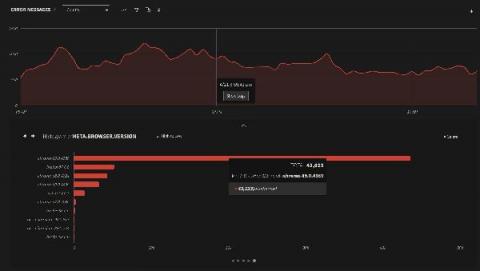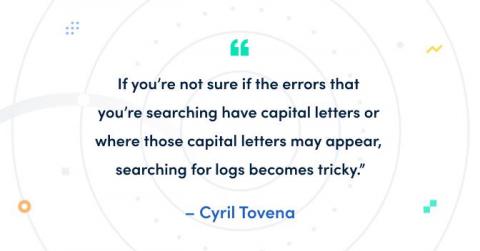Operations | Monitoring | ITSM | DevOps | Cloud
Logging
The latest News and Information on Log Management, Log Analytics and related technologies.
The Essential Guide to PHP Error Logging
PHP has been one of the top (if not best) server-side scripting languages in the world for decades. However, let’s be honest – error logging in PHP is not the most straightforward or intuitive. It involves tweaking a few configuration options plus some playing around to get used to.
Introducing Browser Logger - Unlocking the Power of Frontend Logs
Modern web applications are more reliant on the frontend than ever before. While there are many benefits to this approach, one downside is that developers can lose visibility into issues when things go wrong. When the application experience is degraded, engineers are left waiting for users to report issues and share browser logs. Otherwise, they might be left in the dark and unaware that any issues exist in the first place.
The Value of Ingesting Firewall Logs
In this article, we are going to explore the process of ingesting logs into your data lake, and the value of importing your firewall logs into Coralogix. To understand the value of the firewall logs, we must first understand what data is being exported. A typical layer 3 firewall will export the source IP address, destination IP address, ports and the action for example allow or deny. A layer 7 firewall will add more metadata to the logs including application, user, location, and more.
From Distributed Tracing to APM: Taking OpenTelemetry & Jaeger Up a Level
It’s no secret that Jaeger and OpenTelemetry are known and loved by the open source community — and for good reason. As part of the Cloud Native Computing Foundation (CNCF), they offer one the most popular open source distributed tracing solutions out there as well as standardization for all telemetry data types.
How to search logs in Loki without worrying about the case
Whether it’s during an incident to find the root cause of the problem or during development to troubleshoot what your code is doing, at some point you’ll have an issue that requires you to search for the proverbial needle in your haystack of logs. Loki’s main use case is to search logs within your system. The best way to do this is to use LogQL’s line filters. However, most operators are case sensitive.
Splunk Log Observer: Log analysis built for DevOps
Observability: It's Not What You Think
Observability is a mindset that enables you to answer any question about your entire business through collection and analysis of data.











